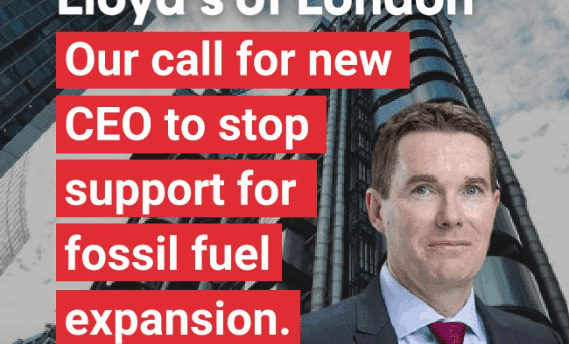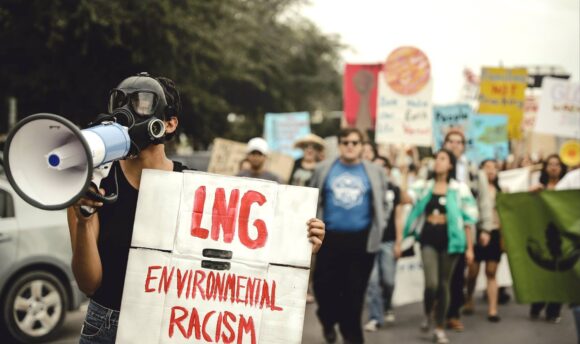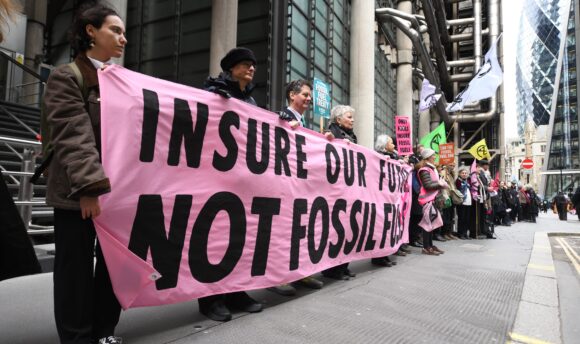Over 30 leading groups and individuals campaigning for action on climate change have written to insurance giant Lloyd’s of London demanding that it end support for the Bahamas Petroleum Company to conduct an offshore oil drilling scheme in the pristine waters of The Bahamas.
The open letter, which was coordinated by global campaign group SumOfUs and signed by dozens of organisations including Waterkeeper Alliance, 350.org, and Rainforest Action Network, says the plan to open up a new oil field with potential for over a billion barrels of oil is “entirely inconsistent” with Lloyd’s pledge to help limit the climate crisis.
Lloyd’s confirmed that it was insuring the project in January this year. The letter asks Lloyd’s to rule out renewing insurance for the scheme, as well as for other destructive fossil fuel projects, including the Trans Mountain tar sands pipeline in Canada, which would expand capacity to transport tar sands oil by 590,000 barrels a day, and the Adani Carmichael coal mine in Australia.
"Lloyd’s says it wants to do its bit to fight climate change, but a reckless hunt for oil in pristine waters is the very opposite of that. We need to rapidly phase out fossil fuels, not go looking for more -- and history will judge harshly those who stand in the way.”
The letter, which was sent to Lloyd’s executives on World Water Day, is part of an ongoing effort to pressure the insurer to end its relationship with fossil fuels. While Lloyd’s produced its first Environmental, Social and Governance report in December 2020 with a weak coal policy, it fails to mention oil and gas.
Exploratory offshore oil drilling by the Bahamas Petroleum Company (BPC) commenced in December 2020, and has met strong opposition locally and globally. Tens of thousands have signed petitions against the scheme, including almost 40,000 in the UK who have appealed to Lloyd’s directly. In December, 18 US senators wrote a letter to The Bahamas’ prime minister in protest.
Campaigners point out that offshore oil drilling in The Bahamas, and other projects to increase supply of oil for burning, are incompatible with the goals of the Paris climate agreement and will lock in decades of avoidable carbon emissions Another key concern is that the project risks triggering an oil spill on the scale of the 2010 Deepwater Horizon disaster, which spilled 4 million barrels of oil and killed tens of thousands of birds and marine mammals.



